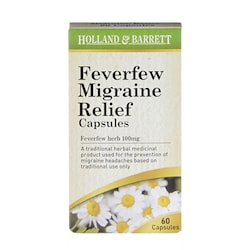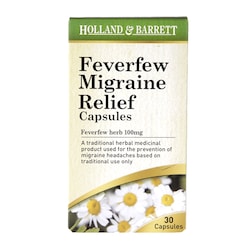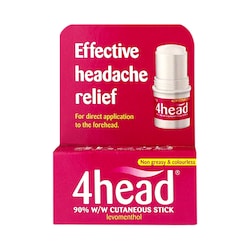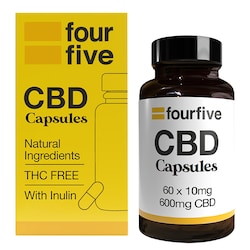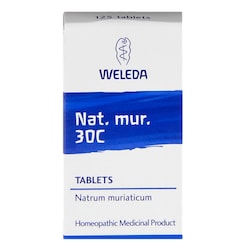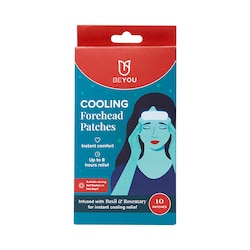15% off £30 OR 20% off £40
Does sex help with headaches?

Why do we get headaches?
Headaches are really common. Some people hardly get them and others get them every now and then or more frequently.
The NHS says most headaches go away on their own and aren’t usually a sign of anything serious.1
Common headache triggers include:
- Having a cold or the flu
- Stress
- Drinking too much alcohol
- Bad posture
- Eyesight problems
- Not eating regular meals
- Not drinking enough fluids (dehydration)
- Taking too many painkillers
- Having your period or the menopause
From more of a scientific perspective, headaches can happen for several reasons.
Tension or stress headaches are caused by tightened muscles in the back of the neck and scalp.
The tension can be caused by a variety of things, from anxiety to eye strain, mainly caused by not wearing glasses or glasses that aren’t strong enough.2
Vascular headaches happen because of a change in blood flow to the brain. This may be caused by a lack of oxygen caused by a spasm in the cerebral arteries or a blood vessel swelling.
Meanwhile, migraines can be brought on by the weather, your diet, bad sleep or stress.
Handpicked content: What's your headache trying to tell you?
Summary
Headaches are common and usually go away on their own. They can be caused by all sorts of triggers, ranging from dehydration and stress to having a cold or the flu.
Does sex help with headaches?
Can sex cause headaches?
Does sex help headaches of all kinds? Unfortunately, it would seem not.
Far from being a headache remedy for all, the study indicated that in some people, far from helping relieve a headache, sexual activity only made the headache worse.
The study indicated that sex as a headache remedy works better for migraines, as the cluster headache patients reported mixed results with 50% of people experiencing cluster headaches reporting sex made their cluster headaches worse.4
So, if you’ve got a cluster headache, it’s advisable to use your bedroom for rest and relaxation only until it passes.
Summary
Research carried out in 2013 found that sex can help make migraines less painful.
But when it comes to non-migraine headaches, other research concluded sex may not be as effective.
Do orgasms help headaches?
Technically, it’s not the sex itself. The key to headache relief is in the climax.
An orgasm is thought by researchers to act like a natural analgesic.5
The reason for this could be in the surge of blood flow, feel-good endorphins and hormones released during a sexual climax. These include dopamine and serotonin – known as ‘happy’ hormones.6
Currently not sexually active? You don’t have to miss out on this exciting headache remedy - solo sexual activity works just as well.
The aim is to release those endorphins – sometimes referred to as ‘nature’s painkillers’.
Summary
Orgasms are believed to be key to headache relief, and not actually the act of having sex.
This is because they release a burst of feel-good ‘happy’ hormones.
What else does sex help?
- Getting to sleep
This is thanks to the hormone, prolactin, which is released during climax. - Blood pressure
It’s no secret that sex appears to lower blood pressure.8 9 Summary
What helps with headaches (other than sex)?
Looking for other ways to relieve a headache? There are plenty of things you can try - check out these 9 tips.
9 other ways to get rid of a headache
-
Massages
Headaches often have their roots in stress and tension.
Keeping stress to a minimum is always recommended for optimum health, and if you experience frequent headaches you’ll know they can be triggered by a stressful day.
A relaxing massage incorporating the forehead, back of neck, top of spine, jaw and eye areas is a great preventative measure to reduce tension headaches.11
Massage, including self-massage, boosts blood flow and can relax tense muscles which can relieve headache pain.12
After the onset of a headache, massage can really help too. You can do this anywhere and it costs nothing. Use firm pressure and simply hold your fingers in place, moving to a gentle circular motion if your pain allows.
If you can afford to drop everything and schedule a professional massage – excellent.
For the rest of us, be assured you can do it yourself, or get a partner, family member or friend to help
-
Staying hydrated
What helps headaches more than drinking a large glass of water?
If your headache is one of the common types – a dehydration headache – then the answer is, nothing!13 14
Once the headache hits, you’re already dehydrated, so the best approach is to sip water throughout the day to avoid getting to this stage.15
The NHS recommends 1.2 litres daily, which is six to eight glasses.16
-
Temperature therapy
Temperature therapy might be the best thing for a headache.
A nagging headache can be soothed with the help of a warm compress, or temporarily numbed with the application of a cold pack.17
According to the National Headache Foundation, those with migraine headache generally prefer cold packs. Sufferers with tension-type or muscle contraction headaches may prefer warm packs.18
A microwaveable cloth rice bag can be placed across the forehead or the back of the neck, depending on where the source of the pain is. These generally shouldn’t be heated for more than 30 seconds, to avoid them getting too hot and burning the skin.
Ice wrapped in a flannel or small towel can be applied to the forehead or back of the neck, ideally while lying down to avoid it falling off.
The idea behind temperature therapy for headaches is to help reduce inflammation by either cooling the blood vessels through ice or causing the blood vessels to dilate through heat.
Both can offer relief for headaches.
Each individual and headache is different, so find what works best for you.
Warming and cooling pads are also available which are adhesive and mould to the shape of different parts of the head.
-
Acupuncture
Acupuncture involves inserting thin needles under the skin to realign the flow of energy, or qi, in the body.
According to the Cochrane Review, acupuncture could be effective at helping prevent migraines, with less side effects than taking certain migraine medicine.
Research has also found that acupuncture may also be beneficial for people who get frequent episodic or chronic tension headaches.19
-
Stretching
There are certain stretches you can do to help ease muscle tension that can cause headaches. You can do:2
- Neck stretches - point your chin forward, upwards and then towards each shoulder.
- Shoulder shrugs – shrug up, then up and forwards, and then up and backwards.
- Neck isometrics – press your palm into your forehead and hold it, then press your hand on either side of your head.
Aim to do these stretches twice a day for 20 minutes at a time. Hold each stretch for 5 seconds, relax for 5 seconds and then repeat each stretch 3 to 5 times.
-
Meditation
Meditation can be used to calm your mind down, which may help with headaches, especially if they are stress-related.
According to a study of people with migraines in the Journal of Behavioural Medicine, spiritual meditation reduced headache frequency and improved pain tolerance more than secular meditation and muscle relaxation.
Research into the link between meditation and headaches is limited at present.21
Handpicked content: Meditation guide: An introduction to meditation for beginners
-
Yoga
Following on from meditation, yoga is also a calming form of exercise that can ‘boost relaxation and balance the mind, body and spirit,’ according to the National Center for Complementary and Alternative Medicine.
Meanwhile, a study published in Headache found that yoga can help reduce the frequency and severity of migraines.
This was concluded after two groups of people who suffer from migraines were randomly given three months’ yoga therapy or self-care.22
Handpicked content: Taking care of yourself: Self-care ideas
-
Mindfulness
Deep breathing, relaxing to music or using mental imagery can potentially help people to relax and unwind, which in turn, may also help with preventing and easing headaches.
A study carried out in 2011, involving 90 people with chronic tension headaches, found relaxation training more effective than acupuncture.
They were randomly asked to have acupuncture or take part in relaxation training, or physical training over the space of six months.23
Handpicked content:What is mindfulness?
-
Avoiding food and drink triggers
Certain food, such as processed meat, contains nitrites, nitrates and monosodium glutamate, which is used to flavour food and has been linked to migraines.
Meanwhile, caffeine, alcohol, phenylethylamine, in chocolate and cheese, tyramine, in nuts and fermented meats, cheeses, and soy, and aspartame, present in most artificially-sweetened food, have also been identified as migraine triggers.24
Summary
There are many other methods you can try to help prevent or ease headaches. They include meditation, yoga, mindfulness, acupuncture and drinking plenty of water.
Takeaway
Does sex help with headaches or cause them?
Well, the jury’s still out in relation to this question because some people find sex is the best ever headache cure, while others find it does nothing or makes their headaches worse.
The research that’s currently out there is presenting a mixed bag of results, so if you do get headaches and are wondering if sex is the solution; the best way to know is to try it.
What works for some people may work for others and vice versa.
And if you find sex isn’t a headache cure, there are plenty of other things you can try instead!
Last updated: 25 October 2021
- https://www.nhs.uk/conditions/headaches/
- https://www.bbc.com/future/article/20140214-why-do-we-get-headaches
- https://pubmed.ncbi.nlm.nih.gov/23430983/
- https://pubmed.ncbi.nlm.nih.gov/23430983/
- https://www.newscientist.com/article/mg21028124-600-sex-on-the-brain-orgasms-unlock-altered-consciousness/
- https://www.sciencealert.com/here-s-what-happens-to-your-brain-when-you-orgasm
- https://www.sleep.org/does-sex-affect-sleep/
- https://www.ncbi.nlm.nih.gov/pmc/articles/PMC5052677/
- https://www.sciencedirect.com/science/article/abs/pii/S0301051105000736
- https://www.mayoclinic.org/diseases-conditions/high-blood-pressure/in-depth/high-blood-pressure/art-20045206
- https://www.ncbi.nlm.nih.gov/pmc/articles/PMC1447303/
- https://www.sciencedaily.com/releases/2010/07/100708081233.htm
- https://pubmed.ncbi.nlm.nih.gov/14979888/
- https://pubmed.ncbi.nlm.nih.gov/26200171/
- https://academic.oup.com/fampra/article/29/4/370/492787
- https://www.nhs.uk/news/food-and-diet/six-to-eight-glasses-of-water-still-best/
- https://www.ncbi.nlm.nih.gov/pmc/articles/PMC3727573/
- https://headaches.org/2007/10/25/hot-and-cold-packs-showers/
- https://www.health.com/condition/headaches-and-migraines/13-surprising-ways-to-fight-headache-pain?slide=73
- https://www.health.com/condition/headaches-and-migraines/13-surprising-ways-to-fight-headache-pain?slide=50
- https://www.health.com/condition/headaches-and-migraines/13-surprising-ways-to-fight-headache-pain?slide=4
- https://www.health.com/condition/headaches-and-migraines/13-surprising-ways-to-fight-headache-pain
- https://pubmed.ncbi.nlm.nih.gov/21317776/
- https://www.health.com/condition/headaches-and-migraines/13-surprising-ways-to-fight-headache-pain?slide=0b


